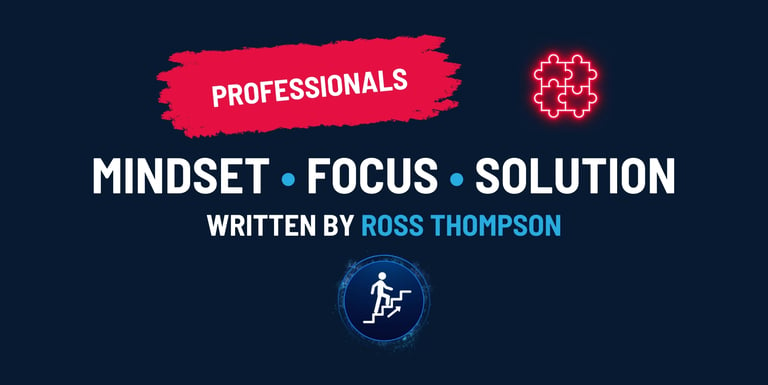


The Secret To Achieving Goals Without Burning Out
Have you ever felt like you should be working 24/7 to achieve your goals? I myself actually used to feel exactly like that!
Maybe you’ve pushed through late nights, skipped dinner or thwarted your social plans just to get closer to whatever it is you are working towards achieving. It’s a common mindset but it’s also the fastest way to burnout.
As you can see in my video above, I explore why celebrating small wins and scheduling breaks are just as important as action itself, and how this approach keeps you moving forward sustainably.
The Myth Of Non-Stop Hustle
There’s a long-standing belief that to reach your goals, you have to work constantly. Social media feeds glorify the “hustle culture,” and productivity gurus often emphasise relentless effort.
But working without breaks leads to fatigue, mental exhaustion and can also even lead to physical health issues. I imagine it being a bit like running a marathon without there being any water stations to stop at along the way. In such a scenario, you would certainly burn out before you reach the finish line.
This is where work-life balance coaching becomes essential. The goal isn’t to work less. The goal is to work smarter, celebrate progress and ensure there are opportunities to rest and recover.
Why Breaks And Celebrations Drive Progress
Breaking your work into manageable chunks and acknowledging progress does more than prevent burnout:
Rest enhances your focus. Short breaks restore energy and prevent decision fatigue.
Celebration reinforces motivation. Recognising small wins triggers a sense of accomplishment and pride, and will make you feel more positive.
Perspective improves. Pausing gives you a moment to reflect, adjust plans and maintain clarity.
For example, imagine you’re aiming to complete a big project at work. Instead of grinding 12-hour days, you break it into achievable milestones. After each milestone, you pause, reflect on the achievement and then plan the next step. This approach maintains momentum and keeps stress low.]
How Work-Life Balance Coaching Can Help
Your Starting Point online coaching sessions, which run monthly, are designed to guide you through this process. In this one hour session, I will help you:
Identify the right pace for your goal without overloading yourself.
Create a structured plan that includes rest and recovery periods.
Celebrate wins effectively to maintain motivation.
Adjust your approach when fatigue or stress appears.
With this support, you’ll learn to balance action and rest, turning your goals into sustainable achievements rather than short-lived bursts of effort.
Real-Life Example: From Overwhelm To Sustainable Progress
One client came to me exhausted. They were trying to launch a side business while working full-time, believing that every waking hour needed to be dedicated to the goal.
Together in the coaching sessions, we introduced planned breaks and a system to celebrate the small wins, which included completing tasks, reaching significant milestones and acknowledging progress each week.
Within a few months, they not only met their targets but felt more energised, motivated and confident. They could feel themselves getting closer and closer to the end goal through every small step that they were taking, without stress and burnout. This shows how balancing work and rest amplifies success.
Strategies To Include Breaks And Recovery
Here are practical tips to integrate into your own goal-setting routine:
1. Plan Breaks Like Tasks
Schedule short breaks or pauses during your workday. Even 5–10 minutes every hour is enough to boost your energy and your focus.
2. Celebrate The Small Wins
No win is too small. Completing a single step towards your goal deserves recognition, which reinforces progress and encourages continued effort.
3. Weekly Reflection
At the end of each week, review what you’ve accomplished. Celebrate achievements and identify areas to adjust without self-criticism.
4. Recovery Days
Set aside full days where work is paused entirely. Use this time for hobbies, socialising or relaxation.
Work-Life Balance Isn’t Laziness, It’s Strategy
It’s easy to feel guilty for taking breaks, but this mindset is counterproductive. The truth is, structured rest is part of a strategy that accelerates long-term progress.
Think of it like a rechargeable battery. If you drain it completely without recharging, performance drops. Scheduled breaks recharge your energy, increase focus and keep you consistently productive over time.
How Motivation And Discipline Tie In
Balancing work and rest requires discipline. Motivation alone isn’t enough. You might feel inspired one day but exhausted the next. With work-life balance coaching, you create routines that sustain both action and recovery.
It’s about learning how to take consistent steps while honouring your energy levels, so you move towards your goals without the risk of burnout.
If you’re ready to achieve your goals without sacrificing your well-being, book onto an upcoming Your Starting Point online coaching session today. Together, we’ll design a plan that balances effort, rest and celebration, so you can make sustainable progress and feel energised throughout the journey.
To focus solely on overcoming burnout, take a look at my Burnout: Recover & Reset online session.